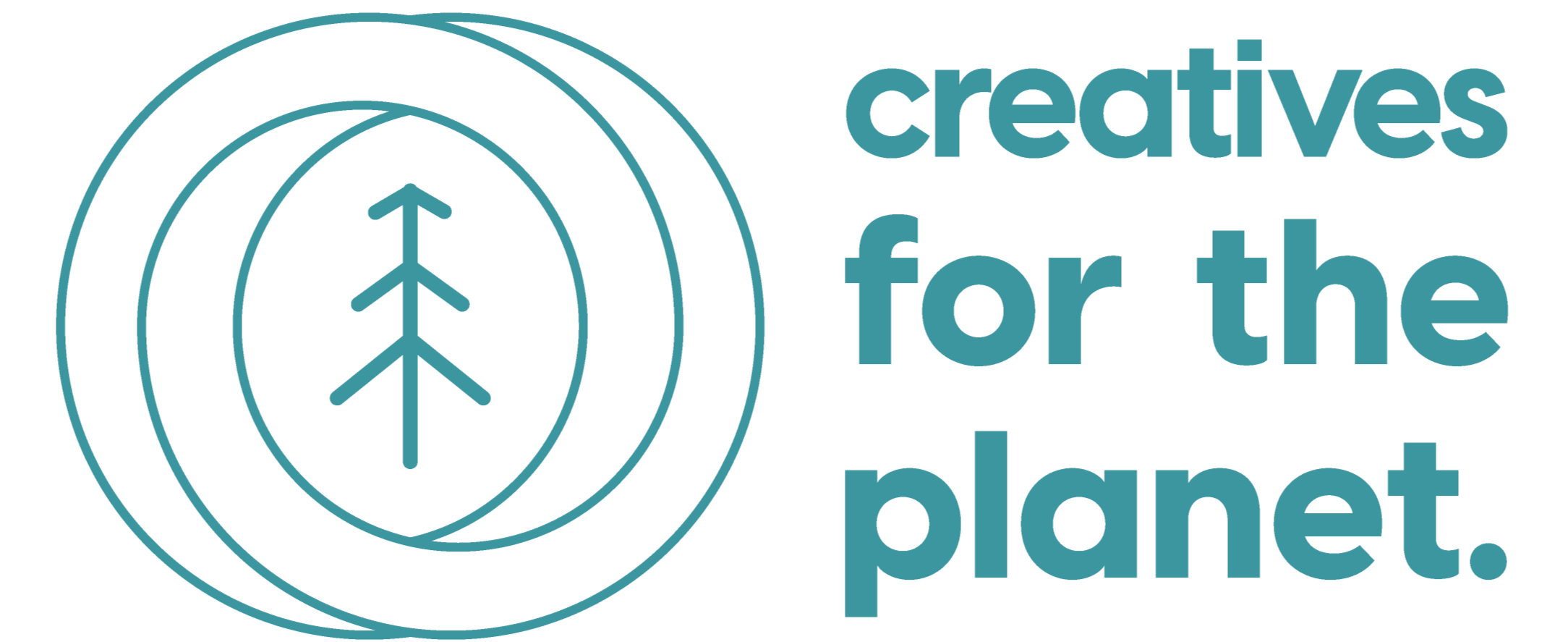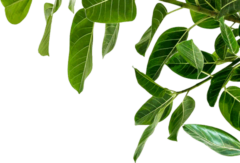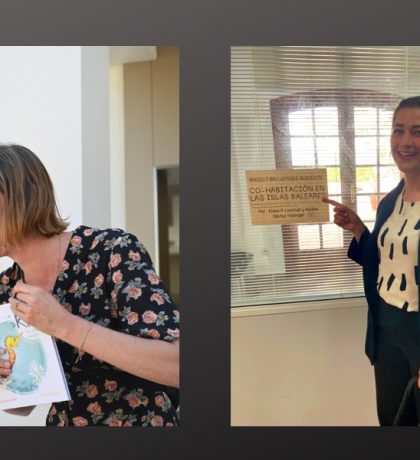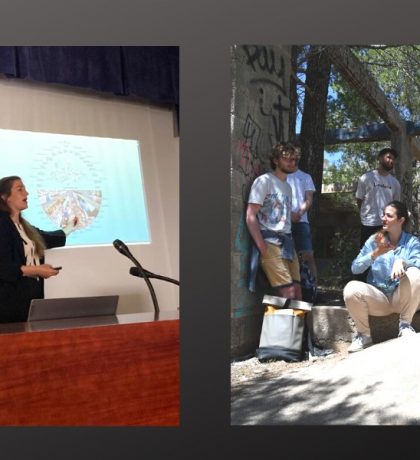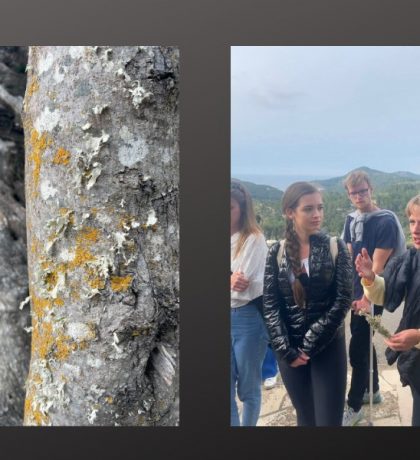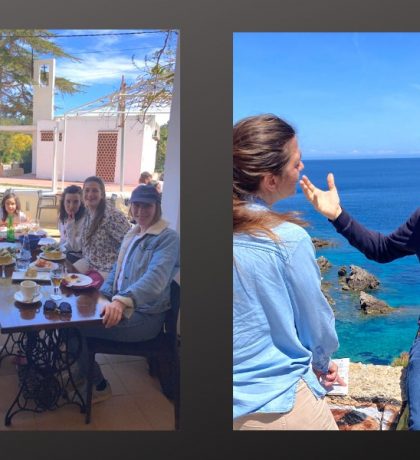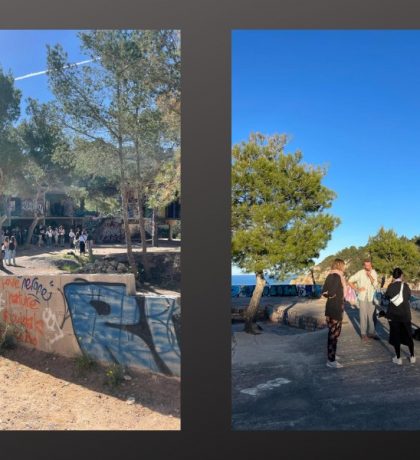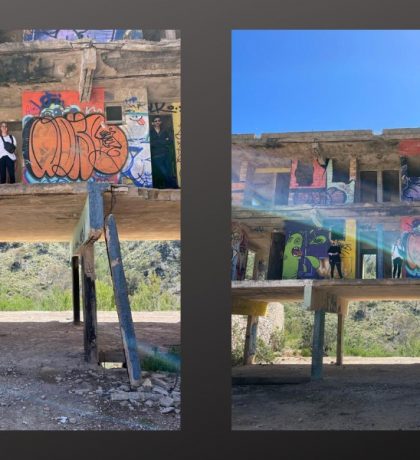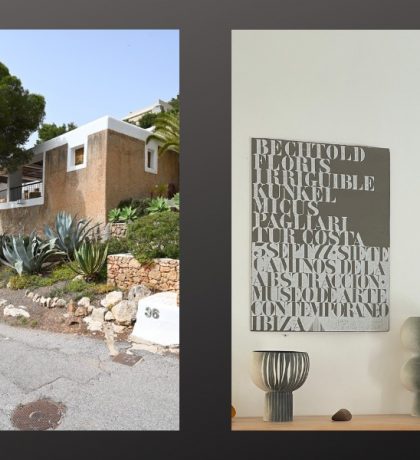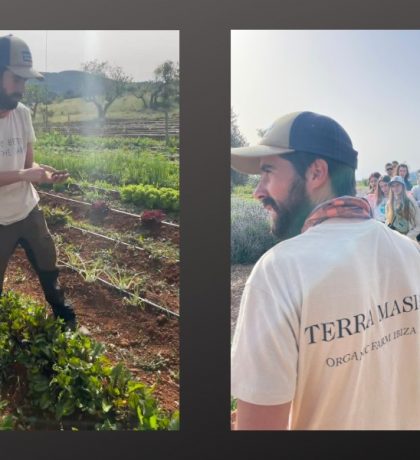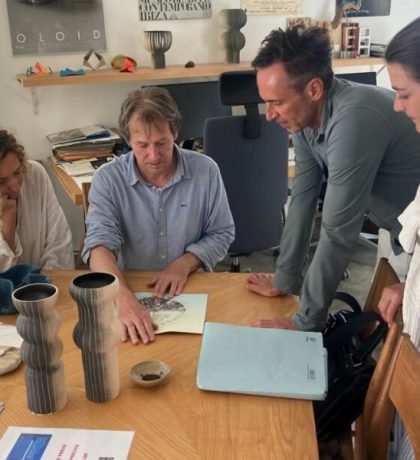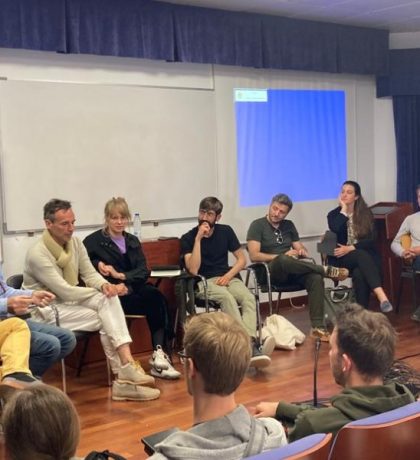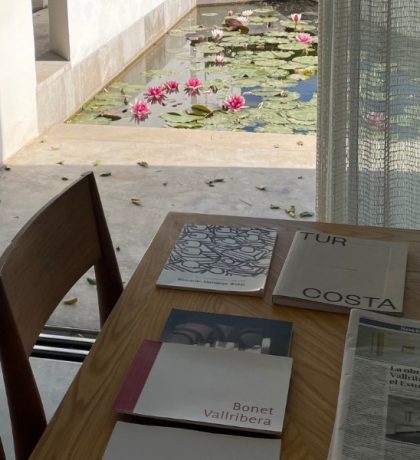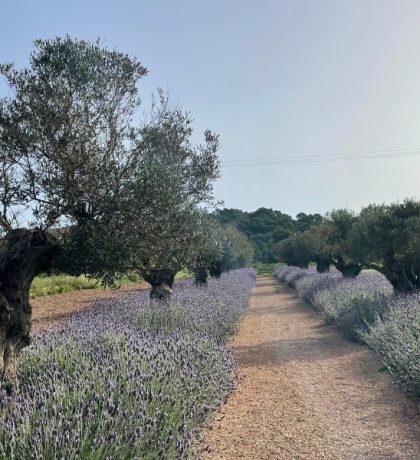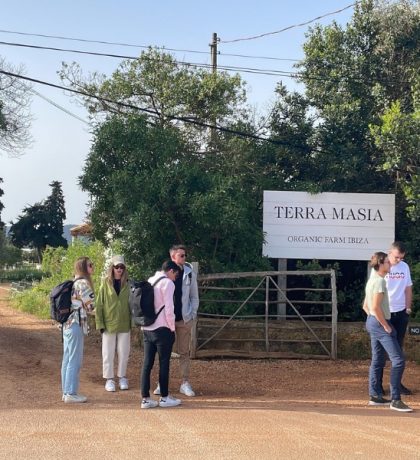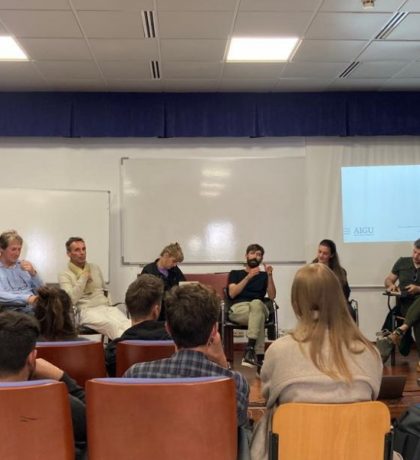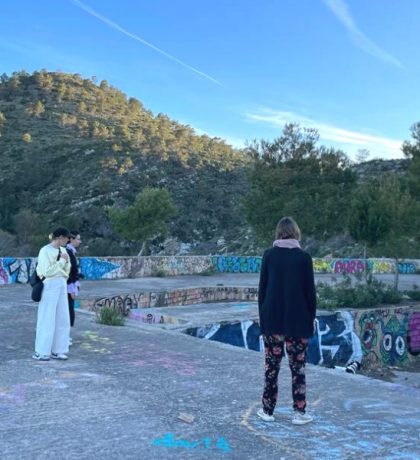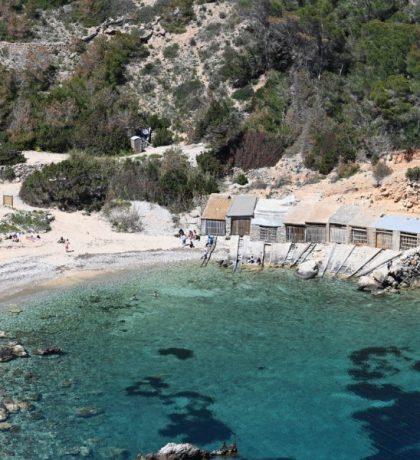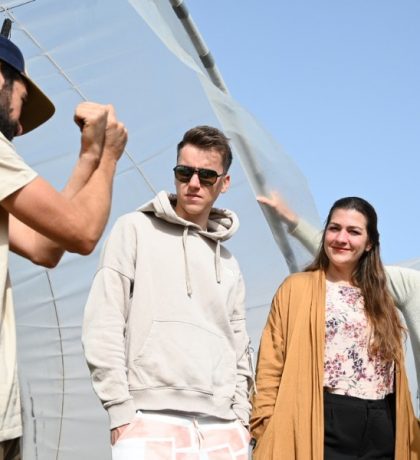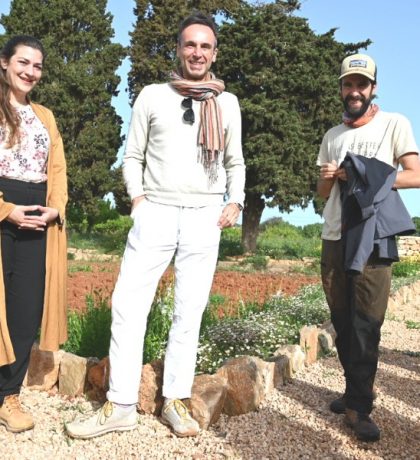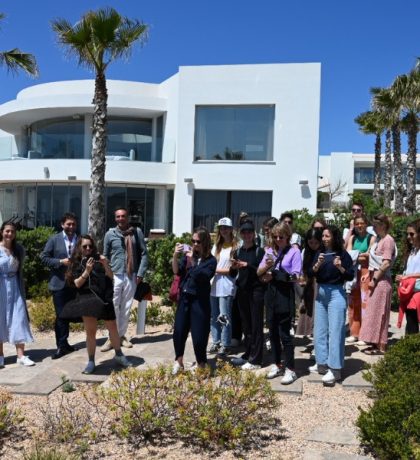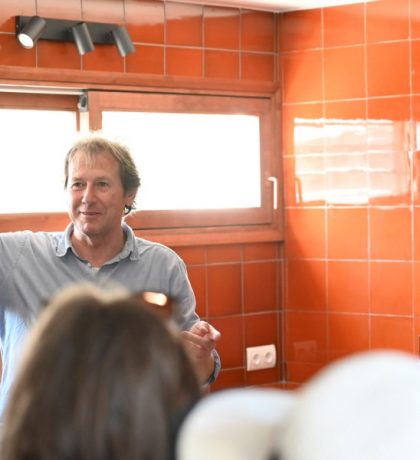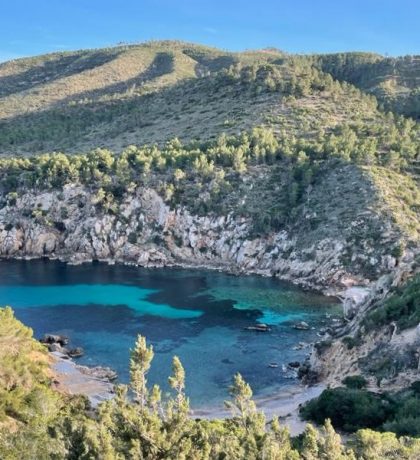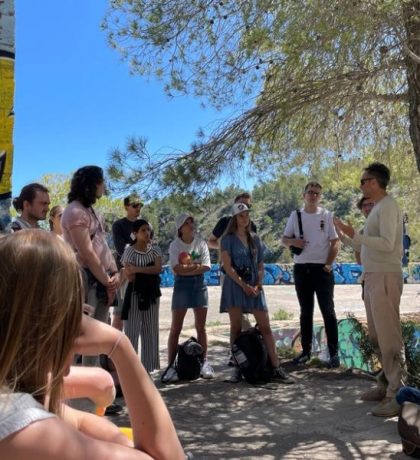What would happen if we were to find out that this place is better left without human intervention?
In spring 2022, two local environmentalists, 30 students, 3 teachers and 1 professor took upon a challenge. Inspired by Einsteins’ quote:
“We cannot solve our problems with the same thinking we used when we created them”, they went on to develop a cross border experimental study”
The development of Co-habitation in Ibiza with a future forward perspective, one which also considered more-than-human actors among its stakeholders, one that from its beginnings proposed foremost, impact and purpose in its set-up.By connecting to generally such separate concepts, Co-habitation and the Posidonia Oceanica the idea was born:
How can we design a prototype which re-imagines possibilities in a truly transformative way?
A conversation about the Posidonia Oceanica, during the Ibiza water day UP Game, in which a bunch of visionaers were reverse engineering solutions and imagining the possibilities for a better future, sparked the idea. This underwater plant organism, in the Mediterranean Sea, is an essential Carbon sequestrator, holding up to 227 million Tons of Co2 per year in Spain. Among its magnificent qualities, this underwater ´forest´ is also responsible for the crystal clear waters of Ibiza and the clean air we breathe, they are a living example for interconnectedness and systemic life approach.
Professor Klaus Klaas Loenhardt, Sophia Brucklacher our Vice President, and Melina Muñoz our Board Advisor, designed and kickstarted the overall concept and approach to develop with the graduate and undergraduate students of the Architecture and Landscaping Institute of the University of Graz, Austria, a Co-habitation prototype for Ibiza.
If they were to develop a prototypical design of or Co-habitation on this magnificent island, and unique location, they first needed to be fully immersed in the socio-cultural realities, challenges and most importantly, be fully aware of the natural wonders of this place. After all, the vision of this project was to create something completely new, also in its process, which entailed a multi-stakeholder perspective approach from its beginnings onwards.
As a strongly debated location (circa 1969) we chose the unfinished mega project of famous spanish architect Josep Lluis Sert, the ruins of Cala d`en Serra, up in the north of the island.
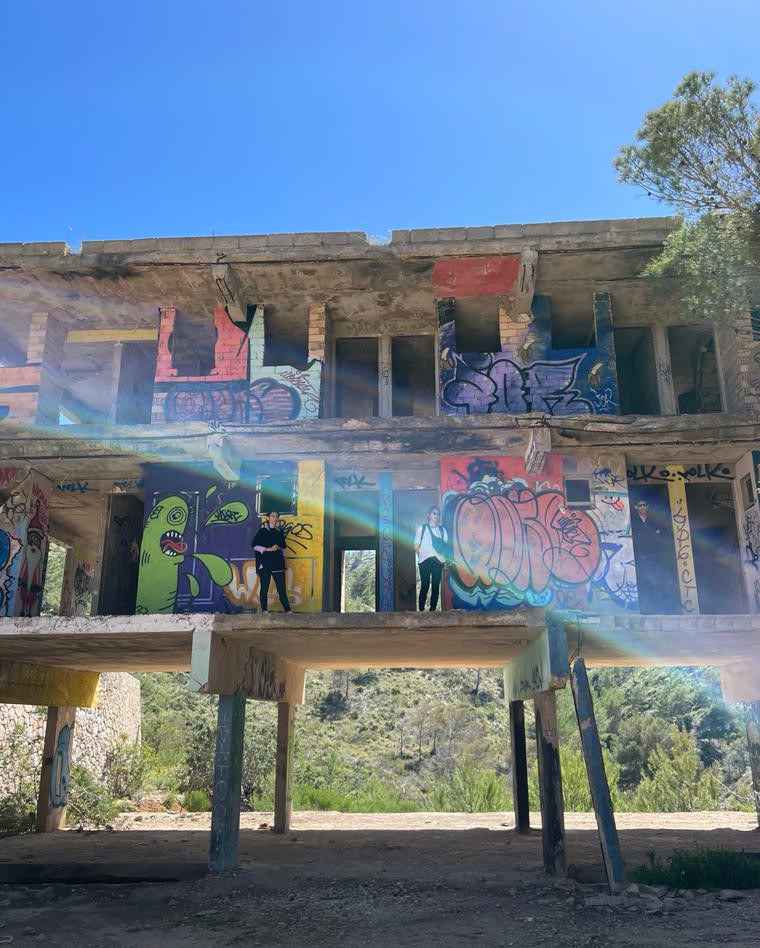
Its secluded location, in the middle of untouched nature, by a calm bay sparked our imagination. We believe that exactly here, the students would have the chance to develop solutions with a future driven vision, but beginning from the past. The solutions should be applicable here, and across the island.
Melina is a change agent and innovator, who thinks fast and in systems, she counsels for brands and NGO`s, designs beautifully, and always holds detail, as well as the macro picture in mind. Having her on our side was a great pleasure and complemented the environmental protection approach we delivered. She and Sophia, worked together with the Uni, zooming and in person, and carefully delivered profound local insights and perspective to the Graz team, which would then translate this to the students´ program. Together they designed an extensive multi-perspective program of activities for the students, for when they came on their field trip to Ibiza.
Among concepting the semester, and field trip program, they introduced the Graz team to important stake- and challenge -holders of the island, with the goal to spark their imagination, whilst keeping in check with the Islands´challenges. In this way, the project was carefully designed with an insider look of the island’s socio economic system and its complex threads.
One of the highlights of the field trip was a tour at Terra Masia, the largest certified organic Farm on the island, where Phillip, kindly introduced the students to biodynamic, regenerative agriculture, and innovative biochar activated soil practices. Agriculture was historically one of the main pillars of the island and is now, fortunately again, a growing sector in Ibiza.
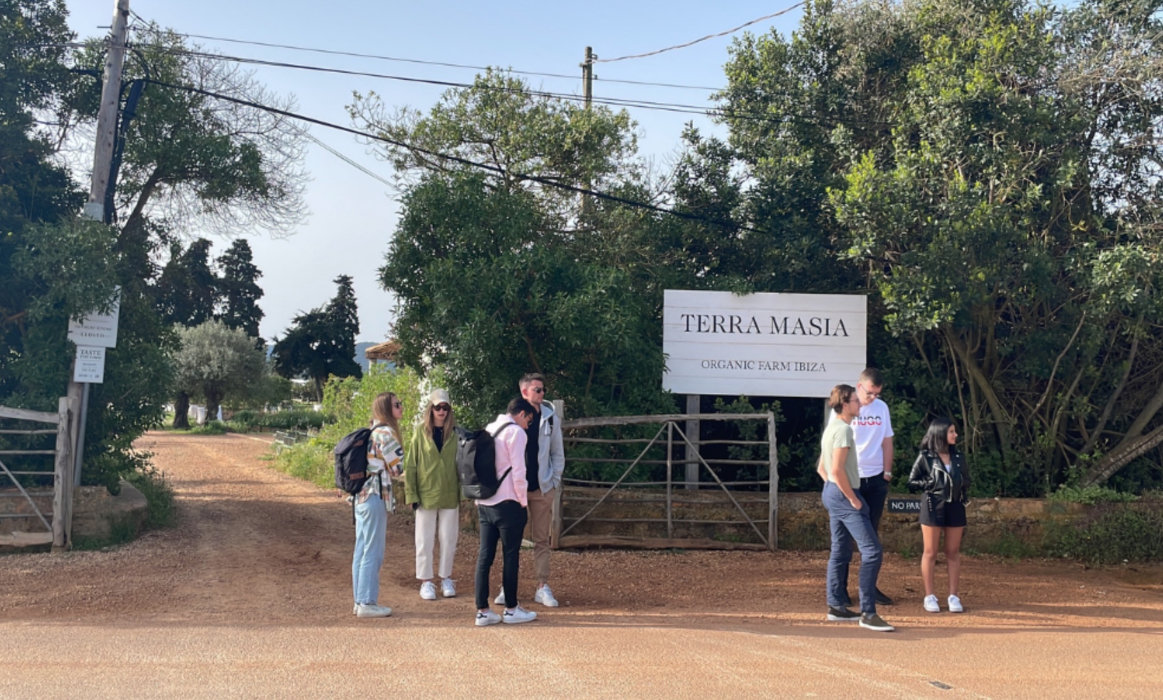
Healthy soil is key to restoring earth’s balance, so it was essential that the students connect with regenerative soil practices, healthy locally produced food.
As tourism and Hotels is among the most relevant sectors of the island, we exposed the students to a tour at 7Pines Hotel and Resort, where kindly Carlos Fritz, exposed the students to operations of a large hotel complex for them to understand, from an operational view, how practices and challenges around sustainability can be implemented. One highlight of the possible implementation strategies was the Kio House of Kids Club, a place for the children to learn about Recycling and Climate friendly practices through play. The Kio House of kids implemented in the Hotel, was inspired by Kio the Seahorse, an educational childrens’ written by Sophia Brucklacher.
Also in the program, was a historical tour on cultural traditions in Puig de Misa Santa Eulalia, with Emilie Kaufmann, a botanical walk with Walking Ibiza to learn about the autochthonous flora and fauna, a visit to an insightful local permaculture activist and landscape Architect Marcos Tur in Jesus, and a carefully orchestrated panel discussion at the Universitat de Islas Baleares.
We would like to extend our thank you at this point to Alicia Reina, for supporting us with valuable insights. She is an extraordinary woman, with a kind heart. She holds multiple leadership roles. Among them, she is the director of the Migjorn Suites and Spa hotel, and president of Baleares, at the AEDH. With her belief in a more sustainable future in tourism, our collaboration with the UIB was possible.
At the University, the local body of the Tourism School was exposed to this project, and the international student body of the Institute of Architecture and Landscape from Graz, could talk with a local expert panel about the challenges of water systems, with Ing. Stefan Meier member of Alianza por el Agua, hear insights of solar energy specialist Juan Tur from Solsulet, take a closer look at waste systems through expert Diego Godoy from UTE Giref Area Ambiental Cana Putxa for Ibiza, and meet Vito Di Rosa co-founder of Aigu, a company tackling the issue of domestic drinkable water, through a more sustainable system that is both user convenient and climate friendly.
Especially discussed were the challenges around contrast between the island´s lower amount of population during the winter, and the island´ s high demand during the busy summers and how to balance both. Sustainability and tourism, the economy, policy and agility, were also topics that were raised.
Finally another highlight was the visit of one of the houses built by Josep Lluis Sert himself, in which the students could deep dive into his way of thinking, and experience first hand a house designed and perfectly adapted to the local circumstances.
Filled-up with lots of insights and ideas, and some sunshine, the students went back home to Graz, Austria to work on their final designs and approach the question:
The More -Than-Human Campus, how can sustainable Co-habitation of 100 people be designed on a mediterranean island, like Ibiza in this secluded spot?
Feeling the easy spring breeze filled with birds flying in the sunset, no noise, just pure nature made all of us wonder:
Is it even possible to build something in a location like this, without harming nature? and could it be possible to re-imagine the way we build to be beneficial for all?
The works of the students show an in-depth understanding of the challenges we are facing, not only in Ibiza, but on a global scale. The first (theoretical) part highlights the dispute of the students about a specific topic, studying the works of modern forward thinkers. Then, the works break down the insights of the field trip to Cala d’en Serra, including all the input provided and translating it to very sensitive designs. It feels like the students almost didn’t want to touch this natural space.
The more-than-human Campus would be a place where humans meet with all of the natural actors on eye level, merging into the space in a sympoetic way. Playing with the surroundings, highlighting the delicate spot and learning that humans can humbly interact with the environment without dominating it.
We are very happy to have co-developed such a future driven project where we had the chance to raise students’ awareness, as they will be those, soon working on this ever challenging world. We hope that some of them could take important lessons into their life. We are thrilled about the results they came up with.
Our vision is to showcase and expose these magnificent works publicly, to as many actors as possible across-sectors on the island, to inspire what is possible. It is truly remarkable that the Institute’s can have such a profound impact guiding and tutoring this next generation in a way which designs the world in a harmonious way, through the novel teachings from professor Klaus Klaas Loenhardt and his teaching team Patricia Ventura, Indre Umbrasaite and Valentin Scheinost.
We wholeheartedly extend a deep thank you to everyone who participated in this, who shared their wisdom and insights, who helped to open the minds, to think of the system before acting and, to design a future we all would desire.
We are grateful for the opportunity to have worked with the Institute for Architecture and Landscape of the University of Graz and the trust of the executing teachers.
